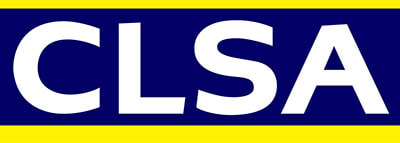Simple Tips to Deal with Difficult ClientsContrary to general perception, difficult clients are the exception not the rule. Nevertheless, it pays to be prepared as it can be a challenging experience, even for the most professional sales person or for that matter, any professional! -Dealing with difficult clients requires empathy, patience and putting aside your ego. Remember it is all about what the client needs at that moment, not about who is right or wrong. It does take up a lot of time and energy however and is certainly a stressful situation to be in for all parties concerned. You can avoid this from happening if you simply learn some steps to dealing with difficult clients more effectively. Attending an NLP for selling course for instance could help you gain valuable insights into selling techniques. Here are four tips to give you a heads-up of what you can expect from attending an NLP for selling course. Apart from benefitting your professional sales aspect of life, the tips you learn will also impact your relationships with colleagues, employer, family and friends. 1. Manage your emotions Learn how to choose your response when faced with a difficult client whether in person, on the phone or via email. When a client is angry or demanding, first remind yourself that the issue is not personal but based on a business transaction. Be prepared to switch your mindset and put aside any defensiveness or blame. Focus and pay one hundred percent attention to this client. Think about how you are going to resolve their complaint. Your most powerful tool is to be well-versed with managing your emotional state and being knowledgeable about how other peoples’ emotions work. For example, when you are faced with an angry customer and you match them with anger, the situation is guaranteed to get worse. The intelligent alternative is to acknowledge the client’s emotion and then respond with empathy. Anger is just an expression of some other issue - fear, misperceived injustice or lack of understanding. Respect the client’s model of the world as they have their own reality which is probably different to yours. So step into their world, understand where they are coming from and respond. 2. Listen actively Once you have acknowledged the client’s emotion with empathy, apologise for the situation and then listen. And by listen, I mean listen actively. This is an invaluable tool in professional sales too. It helps establish rapport, know the client’s needs and open up future sales opportunities. When dealing with difficult clients it is imperative that you give them the opportunity to vent their frustration, disappointment or unhappiness about your product or service. Clients want to be heard and they need an outlet to freely air out their grievances. Nod at appropriate moments to indicate you understand what they are saying. This gives them the assurance that you are listening. Do not interrupt or listen with the intention of rebutting what the client is saying. It is common practice when professional sales people employ selling techniques to do this. I see it so often. Some even start formulating a solution in their mind or even worse, jump to hasty conclusions. You are in a better position when you ask questions to clarify points, after the client has fully explained the issue. It also helps to paraphrase what the client has said. This ensures you have fully understood the situation. 3. Work out a solution Start with a sincere apology, it will go a long way to calm things down. Dealing with difficult clients is easier if the solution to their problem is straightforward. If it is not, part of the solution would be to involve them in the process. Ask them for suggestions or what would satisfy them, within the possibilities of your authority of course. Act promptly to put the solution into action. It defeats the purpose if the solution is delayed after the effort of steps 1 and 2. Worse still, the client is going to get angry again or take their business elsewhere.
4. Follow up The final step is to follow up and check if everything has been resolved to the client’s satisfaction. You may still feel awkward or unpleasant after dealing with difficult clients. If so, it is even more important that you make that call or visit the client to ensure all aspects of the issue have been completely dissolved. This will demonstrate your professional sales posture and could even earn the respect of your client. When dealt with effectively, an angry client could become a recurring client as you would have just boosted his perception of you. Bringing a challenging episode to closure is a boost to your confidence and feedback of a job well done. In conclusion, dealing with difficult clients is stressful and takes up a lot of time and energy. It pays to learn how to do deal with difficult clients more effectively, as in the process you will also gain invaluable tools to deal with just about anybody in your life! Sylvia Fernandes is the Founder & CEO of VIA Frontiers. She is a Master Trainer of NLP who is specialised in corporate applications. She started her business in Sydney in 2002 and has been operating in the Asia Pacific Region ever since. She is currently based in Singapore. She is also the author of Bye Bye Black Cat -- Turn Your Luck Around and Realise Opportunities. Visit VIA Frontiers for more information.
0 Comments
Your comment will be posted after it is approved.
Leave a Reply. |
SYLVIA FERNANDES
Sylvia is a qualified Neuro Linguistic Programming (NLP) Master Trainer. She started her business in Sydney and is now based in Singapore. Archives
December 2024
Categories |



 RSS Feed
RSS Feed









